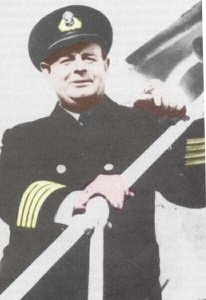By Cara Sulieman
THE REPORT into the C Diff outbreak at Alexandria’s Vale of Leven Hospital revealed that positive changes have been made – but more still needs to be done.
It found that NHS Greater Glasgow and Clyde have made “rapid and very significant progress” to the way the hospital is run.
Between December 2007 and June last year, 55 people contracted the deadly infection and 18 went on to die in one of the worst outbreaks of the disease in Scotland.
After drawing up a list of recommendations last year the review team returned to the hospital to make sure the staff were making the changes.
Joining the team were ex-patients and family members of those affected, including a representative from the Families’ C Diff Justice Group.
The report found that all of the recommendations had been implemented, but some improvement can still be made.
Professor Cairns Smith, a professor of public health at Aberdeen University who headed the review, said that there was still a long way to go.
He said: “It is clear that NHS Greater Glasgow and Clyde have achieved a great deal over recent months they must however continue with this current level of commitment to maintain a high level of performance in infection control.”
But despite efforts to improve conditions, the MSP for the area, Jackie Baillie, is calling for a public inquiry.
She said: “I welcome the progress identified by the follow-up review into procedures at the Vale of Leven Hospital, but it is absolutely clear that we still need a public inquiry to give the families the answers that they deserve.
The review team said that a combination of monthly monitoring, new infection policies and a major training exercise for all staff have helped the hospital reach better standards.
These measure have all been credited with “positive changes to the physical environment and positive atmosphere of the hospital.”
With an initial report carried out last August, seven recommendations were put forward for the hospital to implement.
As part of the investigations, the review team went round the hospital to check that the changes were being made on the ground and interviewed senior managers at NHS Greater Glasgow and Clyde.
Badly needed refurbishment of the hospital is expected to be finished in May, improving the conditions in which patients will be treated.
Nicola Sturgeon, who ordered the review, wants the lessons learnt from Vale of Leven to be followed by NHS trusts across the country.
She said: “Improving infection prevention and control is crucially important in our hospitals, both to reduce infections such as MRSA and C.diff and increase patient confidence in the healthcare system.
“The original report into what happened at the Vale of Leven highlighted a number of important shortcomings which required to be addressed urgently. This is happening not just in Greater Glasgow and Clyde but also throughout the NHS in Scotland.
“While it is heartening that the review team found that such significant improvements have already been made at the Vale of Leven, it is vital that we continue to build on this. I expect health boards across the country to learn the lessons of what happened at the Vale.
“We are committed to doing all we can to tackle ‘superbugs’ like MRSA and C.diff. A raft of co-ordinated measures has already been introduced with more to follow over coming months. It’s encouraging that the latest statistics give cause for optimism that our efforts are now reaping rewards.”
But Jackie Baillie, MSP for Dunbarton, has questioned the validity of the review, saying that not enough time was given to the team to find out what had caused the outbreak.
She said: “Professor Brian Toft, a patient safety specialist with Coventry University, said the report ordered by the Scottish Government was “not fit for purpose”. It gave little help to other Scottish hospitals hoping to avoid a similar serious outbreak.
“Even Professor Cairns Smith, the report’s main author, has admitted that the short investigation he led during the summer did not have enough time to get to the bottom of every aspect.
“Nicola Sturgeon’s approach to C. difficile has been complacent and piecemeal. We need a public inquiry to learn lessons so that other Scottish hospitals avoid a similar serious outbreak.”
Tuesday, February 10, 2009
Categories: 1, News, Politics, Scottish News . Tags: aberdeen university, alexandria, alexandria vale of leven hospital, brian toft, c diff, cairns smith, cloistrim difficile, clyde, coventry university, Deadline, edinburgh, families c diff justice group, Glasgow, greater glasgow, jackie baillie, Jackie Baillie MSP, mrsa, news, nhs, nhs glasgow, nhs greater glasgow, nhs greater glasgow and clyde, nhs trust, nhs trusts, nicola sturgeon, professor, professor brian toft, professor cairns smith, scotland, Scottish Government, vale of leven, vale of leven hospital . Author: carasulieman . Comments: Leave a comment




 By
By